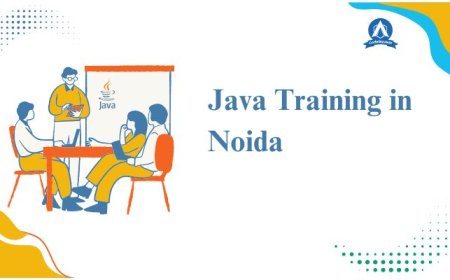Can Online Class Helpers Assist with Research Proposal Development?
Can Online Class Helpers Assist with Research Proposal Development?
Can Online Class Helpers Assist with Research Proposal Development?
Research proposals are foundational online class help documents in academic and professional research journeys. Whether for undergraduate capstone projects, graduate thesis development, doctoral dissertations, or grant applications, a well-crafted proposal sets the direction, feasibility, and credibility of any research. Many students, however, find research proposal writing overwhelming due to its formal structure, academic rigor, and conceptual demands. This has led to a growing question: Can online class helpers assist with research proposal development?
This article explores what a research proposal entails, why students struggle with proposals, the specific ways online class help services support proposal development, ethical considerations involved, and best practices when using such assistance to remain academically responsible and successful.
- What Is a Research Proposal?
A research proposal is a structured plan outlining:
- What you intend to research (topic, research questions, objectives).
- Why the research is important (rationale, significance, gaps in literature).
- How you plan to conduct it (methodology, data collection, analysis).
- Who it will impact (beneficiaries, stakeholders).
- When it will occur (timeline).
- Resources and feasibility (budget, equipment, participant access if applicable).
In academia, proposals are required for:
- Undergraduate capstone or honors projects.
- Graduate thesis and dissertation approvals.
- Doctoral candidacy milestones.
- Grant and funding applications for academic or professional research projects.
- Why Do Students Struggle with Research Proposal Development?
- Lack of Research Experience
Many students, especially at Help Class Online undergraduate levels, have not been formally trained in developing independent research projects, leading to uncertainty about crafting a robust proposal.
- Difficulty Narrowing Topics
Students often start with broad areas of interest but struggle to narrow them into focused, researchable questions.
- Limited Understanding of Methodology
Choosing appropriate research designs (qualitative, quantitative, mixed methods), sampling strategies, and data analysis plans requires methodological literacy, often developed later in academic programs.
- Complex Formatting and Structure Requirements
Proposals follow structured formats varying by institution and discipline, such as IMRaD, APA-formatted proposals, or discipline-specific guidelines, which can be overwhelming.
- Fear of Rejection
Students worry that a poorly developed proposal will lead to rejection by their supervisor, committee, or funding agency, delaying progress or impacting academic confidence.
- How Can Online Class Helpers Assist with Research Proposal Development?
Reputable online class help services employ academic experts capable of supporting students throughout the research proposal process in the following ways:
- Topic Selection Guidance
Experts assist students in narrowing broad topics into specific, researchable questions aligned with:
- Program objectives.
- Supervisor expectations.
- Practical feasibility within nurs fpx 4065 assessment 2 available timeframes and resources.
For example, a student interested in mental health may be guided to focus specifically on The impact of telehealth counseling on depression management among college students during remote learning.
- Literature Review Support
Research proposals require a succinct literature review demonstrating:
- Existing knowledge on the topic.
- Gaps the proposed research will fill.
- Theoretical frameworks informing the research design.
Online class helpers can:
- Identify credible peer-reviewed sources.
- Summarize key findings relevant to the research question.
- Organize the literature review thematically to build logical flow.
iii. Research Question and Hypothesis Formulation
Experts assist in crafting clear research questions and hypotheses that are:
- Specific, measurable, and researchable.
- Aligned with selected methodologies.
- Grounded in literature to justify feasibility.
For example:
- Research Question: How does virtual simulation-based learning affect medication administration competence among final-year nursing students?
- Hypothesis: Nursing students receiving virtual simulation training will demonstrate higher medication administration competence scores compared to students receiving traditional lectures alone.
- Methodology Development
Methodology sections require technical accuracy. Online class helpers provide:
- Guidance in selecting appropriate research designs (experimental, descriptive, correlational, qualitative).
- Sampling strategies and justification.
- Data collection methods (surveys, interviews, focus groups, experiments).
- Data analysis plans, including proposed statistical tests for quantitative research or coding strategies for qualitative research.
- Ethical considerations such as nurs fpx 4065 assessment 5 informed consent, anonymity, and data security protocols.
- Proposal Formatting and Citations
Experts format proposals according to required institutional or journal standards (e.g. APA 7th edition, MLA, Chicago), ensuring:
- Proper in-text citations.
- Complete reference lists.
- Consistency in headings, subheadings, tables, and appendices.
- Editing and Proofreading
Beyond development, helpers offer editing services to ensure:
- Clarity and academic tone.
- Grammar and syntax accuracy.
- Logical flow of arguments.
- Removal of redundancies or irrelevant content.
vii. Feasibility Review
Helpers assess the practicality of proposed research by evaluating:
- Timeline realism.
- Resource availability.
- Ethical considerations and potential barriers.
- Alignment with program requirements or grant agency criteria.
viii. Draft Revisions Based on Supervisor Feedback
After proposal submission, students often receive supervisor or committee feedback requiring revisions. Helpers assist in:
- Interpreting complex feedback.
- Making recommended adjustments while maintaining proposal integrity.
- Strengthening weak sections to align with faculty expectations.
- Ethical Considerations When Using Online Class Help for Proposals
While online class help services provide valuable academic support, ethical use is crucial. Consider the following:
- University Policies
Many institutions encourage students to seek guidance, tutoring, or editing assistance but prohibit outsourcing proposal authorship entirely. It is essential to check your universitys academic integrity policy.
- Responsible Use
Using helpers to clarify concepts, improve writing, and organize ideas is generally acceptable. However, submitting externally authored proposals as your own without contribution may constitute academic misconduct.
- Transparency with Supervisors
Students can discuss with supervisors their intention to seek tutoring or editing support for clarity and improvement to avoid potential conflicts later.
- Benefits of Using Online Class Help for Research Proposal Development
- Improved Proposal Quality
With expert guidance, proposals demonstrate academic rigor, feasibility, and clarity, increasing approval chances.
- Enhanced Confidence
Students feel more prepared and confident during proposal defenses or supervisor meetings.
iii. Time Efficiency
Helpers accelerate proposal development by guiding students through each stage systematically, crucial when proposals are prerequisites for timely graduation.
- Academic Skill Building
Through expert explanations, students learn proper research design, citation practices, and academic writing, skills essential for thesis writing and professional practice.
- Higher Funding Success Rates
For grant proposals, clarity, feasibility, and alignment with funding agency priorities significantly improve chances of financial approval.
- Risks of Using Online Class Help for Research Proposals
Despite the benefits, risks include:
- Misalignment with Supervisor Expectations
If students rely entirely on helpers without discussing ideas with supervisors, proposals may fail to align with departmental focus areas or faculty expertise.
- Overdependence
Students may miss the opportunity to build critical research design and academic writing skills necessary for thesis completion.
- Academic Integrity Violations
Using unapproved ghostwriting services violates academic honesty policies, leading to disciplinary action, proposal rejection, or expulsion.
- Financial Costs
Professional proposal assistance services are often expensive, particularly for extensive doctoral proposals requiring subject matter experts with PhD qualifications.
- Real-Life Example
A final-year psychology student struggled to formulate a feasible quantitative research proposal. She sought online class help, and her assigned expert:
- Guided her in narrowing her topic to The relationship between social media usage duration and sleep quality among undergraduate students.
- Helped her formulate research questions and hypotheses aligned with correlation analysis.
- Drafted her methodology section, detailing sampling, data collection via validated sleep quality questionnaires, and proposed statistical tests.
- Edited her proposal into APA 7th edition format.
The student reviewed, understood, and refined the proposal before submission, resulting in supervisor approval without major revisions.
- Best Practices When Using Online Class Help for Research Proposals
|
Practice |
Benefit |
|
Use services for guidance and improvement rather than full authorship |
Builds academic skills and maintains integrity |
|
Review institutional policies on external academic assistance |
Avoids violations of academic honesty codes |
|
Discuss proposal ideas with your supervisor regularly |
Ensures alignment with faculty expectations |
|
Actively participate in proposal development |
Strengthens conceptual understanding for thesis completion |
|
Choose reputable platforms with qualified subject experts |
Ensures accurate, discipline-appropriate guidance |
|
Revise drafts yourself before submission |
Maintains ownership and preparedness for proposal defense |
- The Future of Online Class Help in Research Proposal Development
With digital academic assistance evolving rapidly, future trends include:
- AI-Integrated Proposal Drafting
Platforms integrating AI tools with human expert editing to streamline proposal development efficiently.
- Live Proposal Coaching
Real-time sessions where experts guide students step-by-step, enhancing skill development alongside proposal completion.
- Discipline-Specific Workshops
Platforms offering targeted online workshops for disciplines like nursing, engineering, business, and psychology proposal development.
- Ethical Assistance Certifications
Services will offer proof of ethical assistance, demonstrating to universities that students received guidance rather than outsourced authorship.
- Conclusion
Research proposals are crucial nurs fpx 4905 assessment 3 academic documents requiring conceptual clarity, methodological precision, and structured presentation. Online class help services can effectively support students in proposal development by guiding topic narrowing, literature reviews, research question formulation, methodology design, and proposal editing.
However, responsible and ethical use is vital. Students must remain actively involved in their proposals to build the skills necessary for thesis writing and professional research practice. When used appropriately, online class help transforms proposal writing from a daunting task into a strategic, confident, and academically enriching process, laying a solid foundation for successful research careers.


































